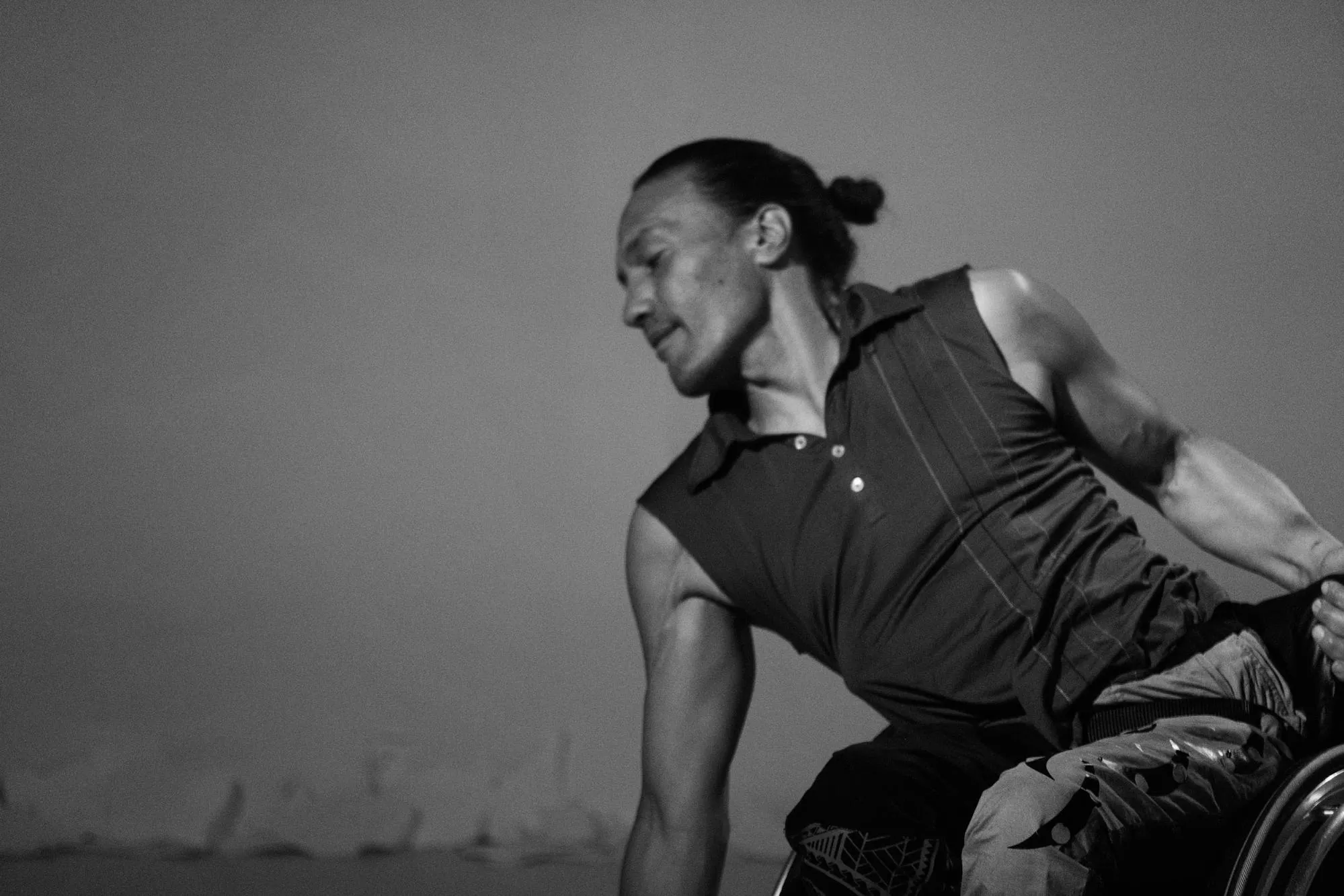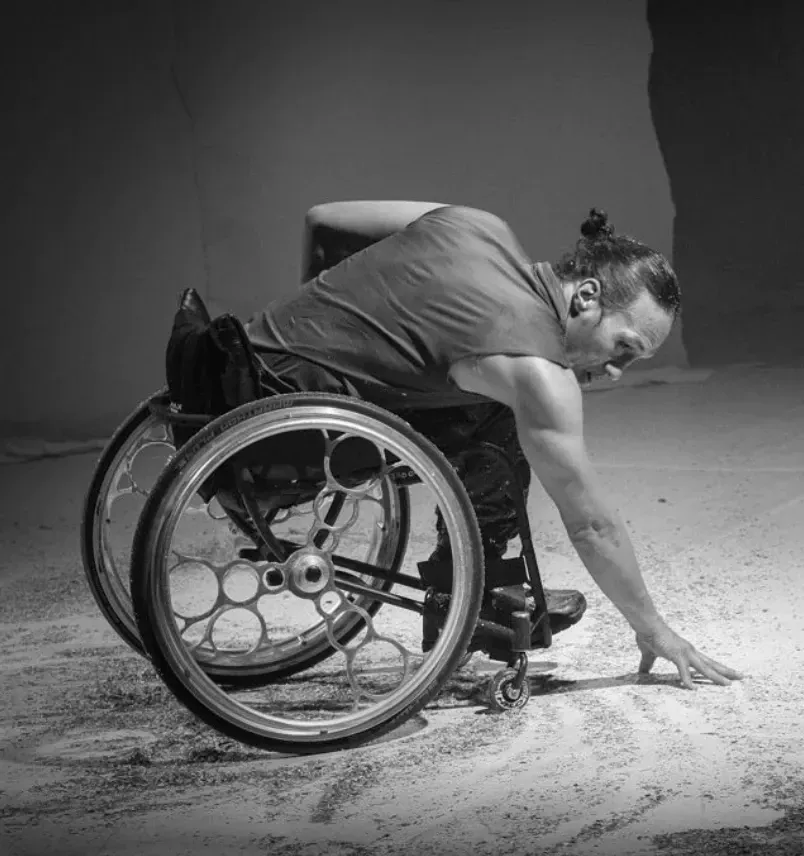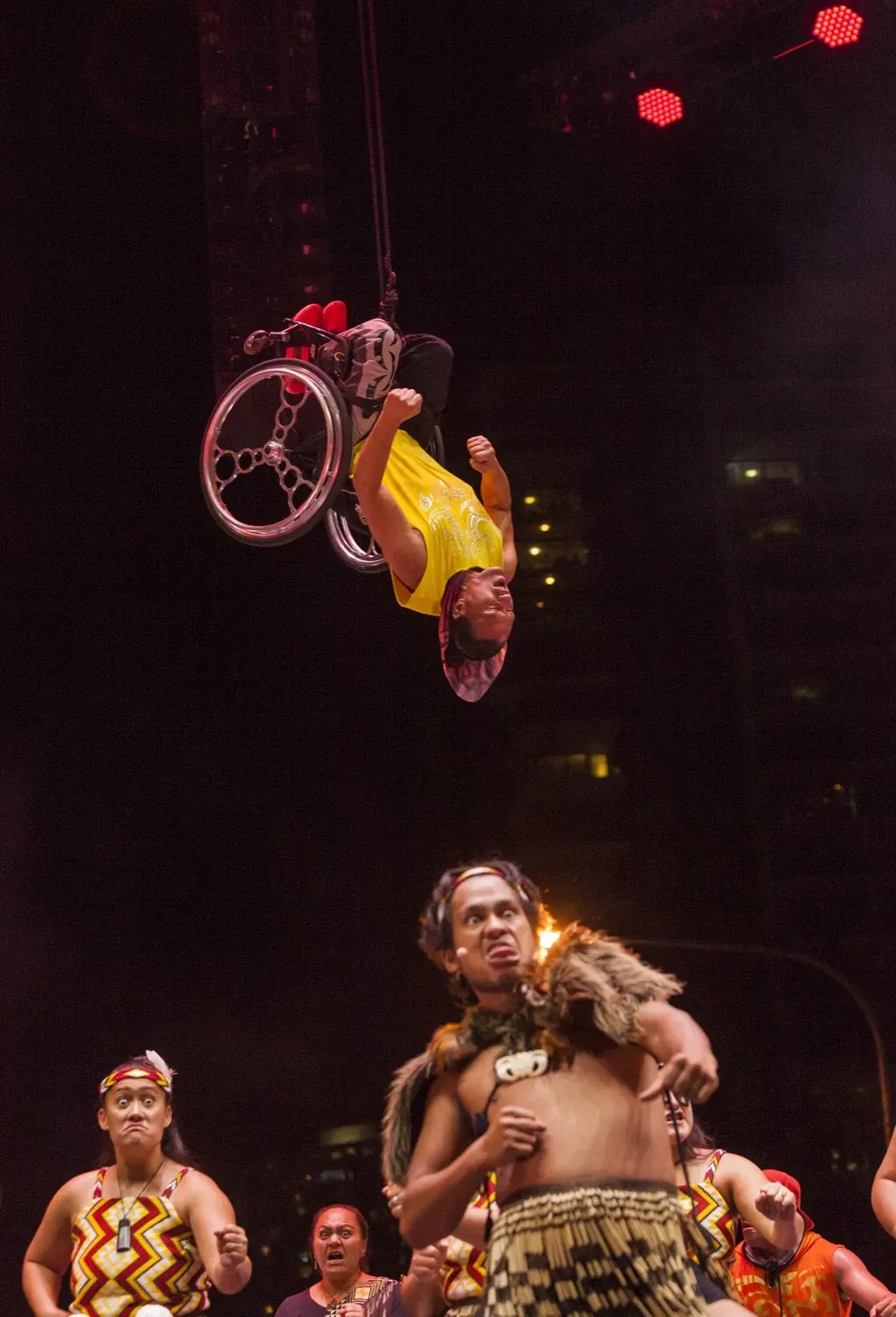Transform the Moment You're In
Written by
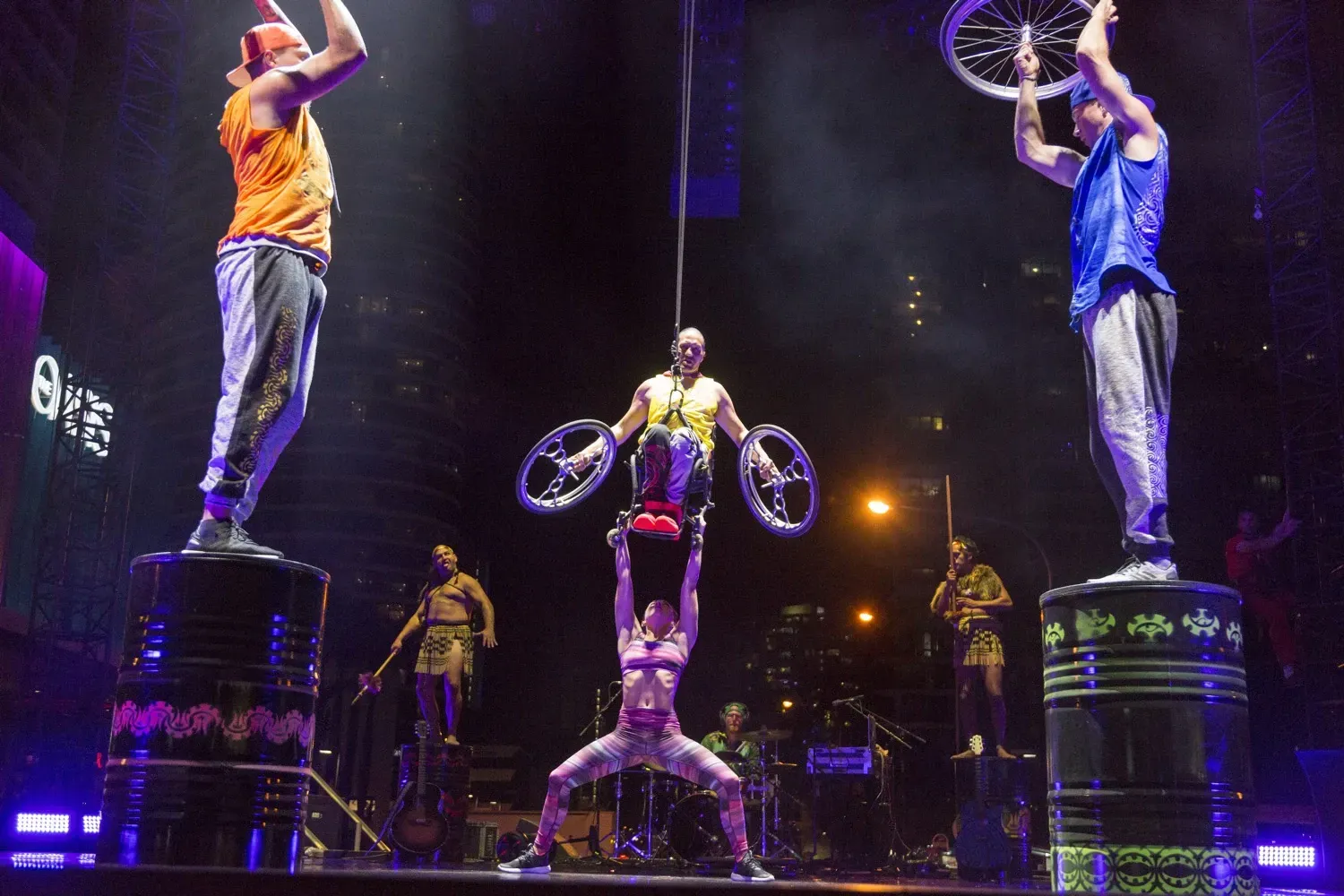
No reira Therefore
No Tainui te Waka Tainui Waka I descend from
No Ngaati Maniapoto te Iwi Ngaati Maniapoto the iwi I belong to
Ko Kaitaa ahau I'm an artist
Ko Rodney Bell taku Ingoa Rodney Bell is my name
Since time immemorial, there has been a school of thought that in order to make good art, artists must know what it is to truly struggle. Because then they could plumb the depths of existential dread, to create solitary works that spoke of their internal struggle. The popular image of these artists is that they are exhausted by the ennui of living. That they are serious, sullen waifs who sustain themselves on black coffee and over-analyzing Satre’s Nausea.
Rodney Bell’s life has been filled with turbulent moments.
Life-changing accidents. Death. Homelessness.
They have either aided him in his journey to becoming a dance artist or helped in creating profoundly beautiful art.
But that is where the parallels of this trope begin and end for Bell, who uses his experiences to further connect people.
“The total permanent cessation of all vital functions of an organism (death) shaped a lot of why I do what I do,” says Bell. “My Dad passing, my Kuia (Nan) and rangatira shifted my perspective on not only to life but the importance of honouring their mana (power) to live a life of honouring those who have sacrificed their all so I can share the haa (air) with you.”
His work has been described as “taking us on a journey of undiminished hope and wonder” by Theatreview. While Pantograph Punch noted Bell’s “charming sense of understatement. He has a way of making you feel like you’re the only one in the room with him, that his monologue is a conversation.” Bell’s warmth continues offstage, with kind, thoughtful responses as we craft this story.
Life changes course
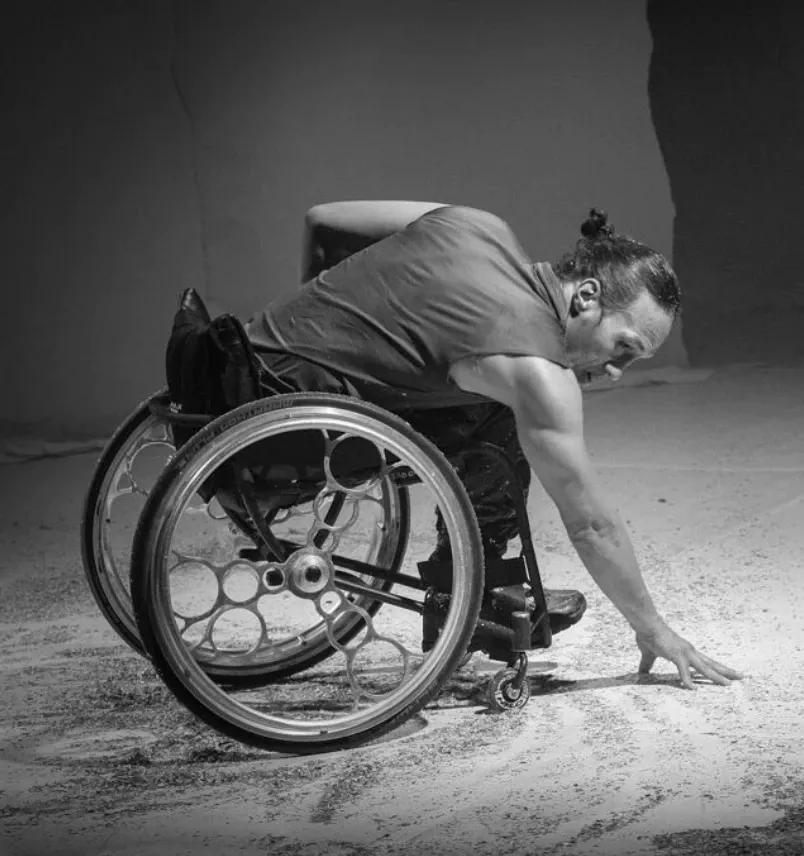
Rodney Bell in performance. Photo: Vanessa Rushton.
Born in Te Kuiti of Ngāti Maniapoto, Bell was paralysed from the chest down in a motorcycle accident in 1991. In an interview with the Otago Daily Times, he said that “he looks at the accident as bringing many blessings - but it was a huge transition.”
As Bell adapted to the way his body now worked, he found himself drawn to the world of dance, with the support of dancer Catherine Chappell. “My first introduction to dance was in a hall in Thames,” recalls Bell. “Te Raa {the sun) was blessing us with all good things and I was asked to play my harmonica as we entered a hall full of unexpected audience. Not knowing what to do on stage or what it means, all of a sudden I was encapsulated by the energy and accompanied by my roro (mind) there and then dance stole my soul.”
Together, Chappell and Bell became the founding members of Touch Compass Dance Trust, an internationally feted, physically integrated dance company. Eventually, Bell’s approach to dance caught the attention of AXIS Dance Company in Oakland. In 2007, he packed his bags and headed over to become their principal dancer for the next five years. During this time, he honed his unique creative expression that merges contemporary and traditional Māori dance. Bell’s style won him awards and turned heads across 32 states.
As his star rose, Bell found himself receiving a lot of advice. “I’ve never received any unwanted advice to date,” he says. But it was while he was staying with a couple in Berkley, California - “who I had the utmost respect for” - that Bell received his most meaningful advice as an artist.
“[The couple] were both Tangata Hauaa (disabled) and had a strong connection to Mayan spirituality and beliefs,” recalls Bell. “Once they had invited a shaman to the house to give a talk and awareness to the Mayan world and invited me to participate. The shaman explained how the Mayan believed that we are made up of two souls and said something profound which has always stuck in my mind and enhanced the way I feel towards people.
“He said ‘I be You, You be me’”.
Hitting Bottom and climbing up again
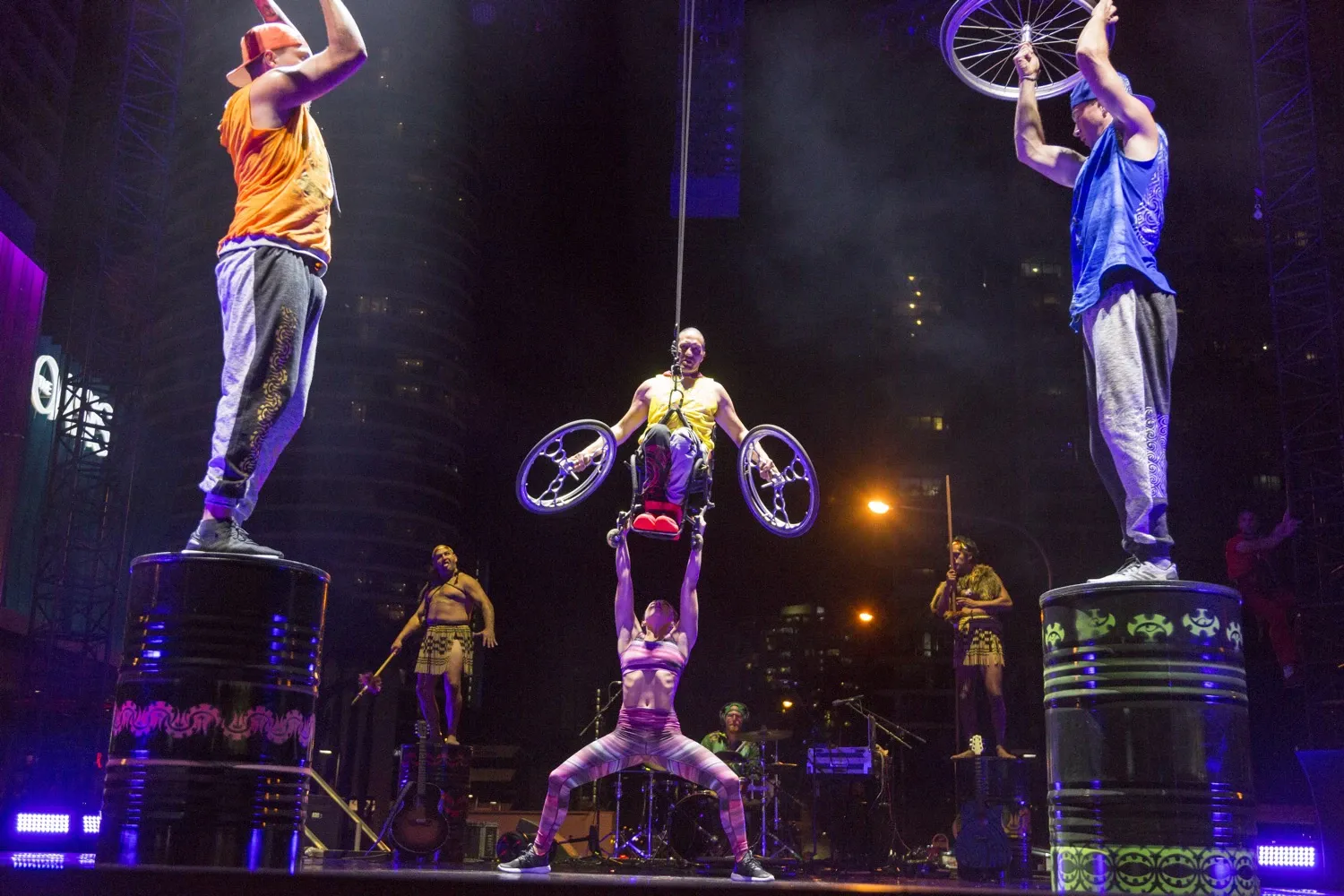
Rodney Bell performing at Thunderdome. Photo: Ray Cash.
After his contract ended in 2012, Bell found himself homeless in San Francisco because he was “too proud” to ask his family for help. In an interview with Stuff, he describes the experience as “a marathon. You're always moving, trying to find essentials like running water." Eventually, he made his way back to New Zealand in 2015 courtesy of the Hands Up organisation.
Ensconced in his hometown, Bell began carving a meremere, an action that led to him creating an autobiographical dance of the same name. Merging audio-visual, dance and music, Meremere told Bell’s extraordinary life story. It was performed up and down New Zealand, including in prisons, schools and marae. It remains the work Bell is most proud of. “[It] consistently takes me on a profound spiritual quest.”
Meremere was lauded by audiences and critics alike, netting Bell the 2017 Arts Access award for artistic achievement and the 2016 Attitude award for artistic achievement. As a performance, it was praised for its exploration of heritage, disability, homelessness and the desire to connect with people on a human level.
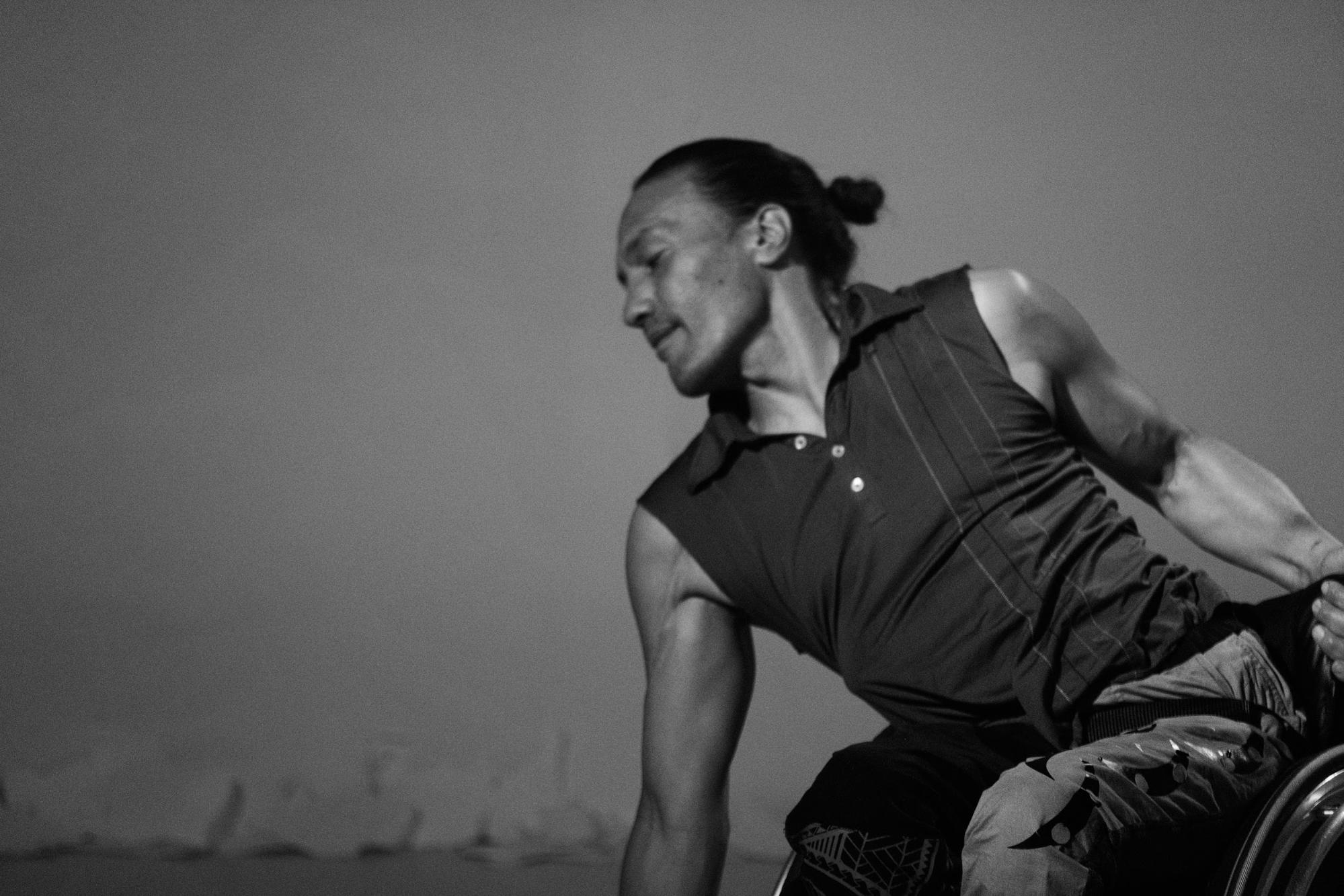
Meremere at Circa Theatre. Photo: Vanessa Rushton.
Throughout his work, Bell has not been looking to dispel any myths about dance. “We endeavour to be moved and be touched by dance yet we cannot ignore that in reality, we live in a fragile world and body, so I feel that all conceptions are valid,” he says. “Dance has introduced me to the most committed, creative, disciplined humans I've ever met ...some have dedicated all their lives to dance. I feel it's not my place to judge or shift people's conceptions but when I get my moment, I will meet it with my all and maybe in their silence an unexpected reality occurs.”
Each to their own
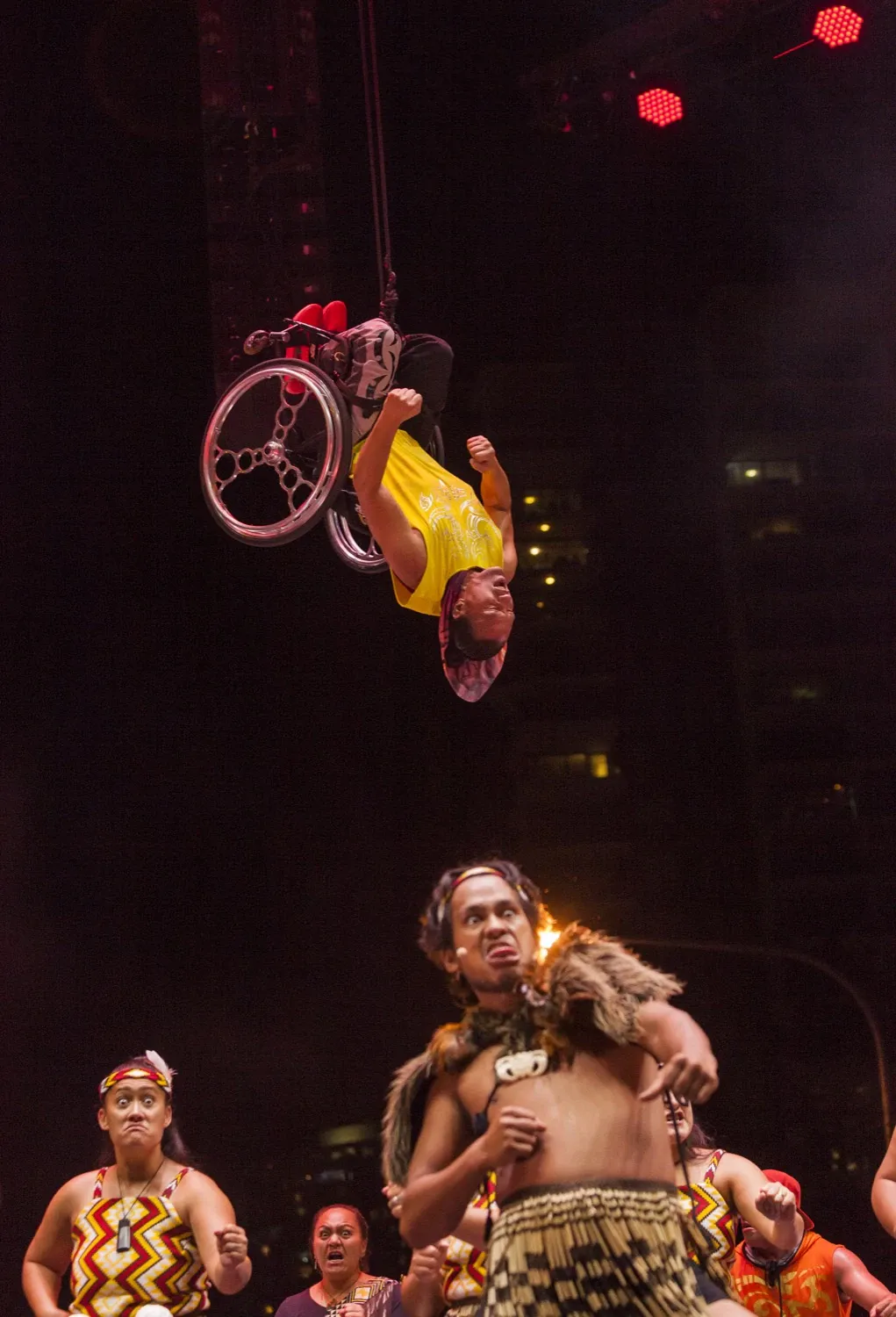
Rodney Bell performing at the Commonwealth Games.
When asked what he wants audiences to take away from his work, Bell responds “I'm open to how the audience feels as they bring their own lived experience to how they witness my performance. I'm not wanting to fix or eradicate the experiences that they've had in their lives but offer a door of possibility to a new way of embracing what performance is and cultivate a willingness to challenge assumptions.”
Considering his career to date, Bell says “the only moment I can transform is the moment I'm in so looking back to the noise of the past and all its commitments and I feel a sense of pride as it all came from a place of Mana. Most of the time I'm moved by the simple things and that heightened awareness always - always - relates to maatauranga Māori (Māori knowledge).
“All I want is not to be tempted to use my past decisions as an excuse to defer my future. Taku hoa (my friends) have always been supportive of my dance journey. What eludes me is when systemic benevolence prevails itself. Time and experience have taught me that trying to satisfy the ‘never satisfied’ can bring sorrow because I can never satisfy the condition that they are seeking, this so-called light of new perspective. In relation to my work, I say that eventually I go back to my maatauranga Māori and focus on the simplicity and the true quality of friendship.”
Bell’s trailblazing work has undoubtedly shaped a unique niche in the artistic landscape of Aotearoa and the world. Looking forward, Bell is keen to “become a poutoko (leader) for tangata whai kaha (disabled Māori and whaanau)...I'm currently working on how my artistic lived experience can support [them] to have greater choice and control over the support that they receive so that they can plan for the lives that they want.”
2021 will bring performances of Meremere and Hurihuri, so keep your eyes peeled for the chance to experience your own moment of transformation.
